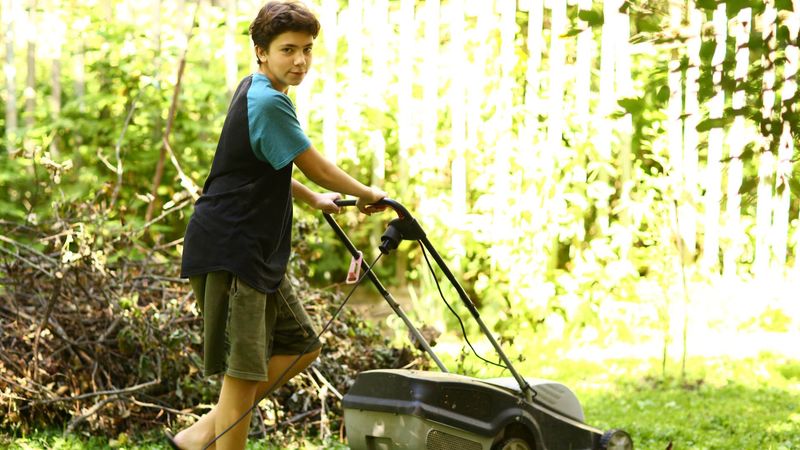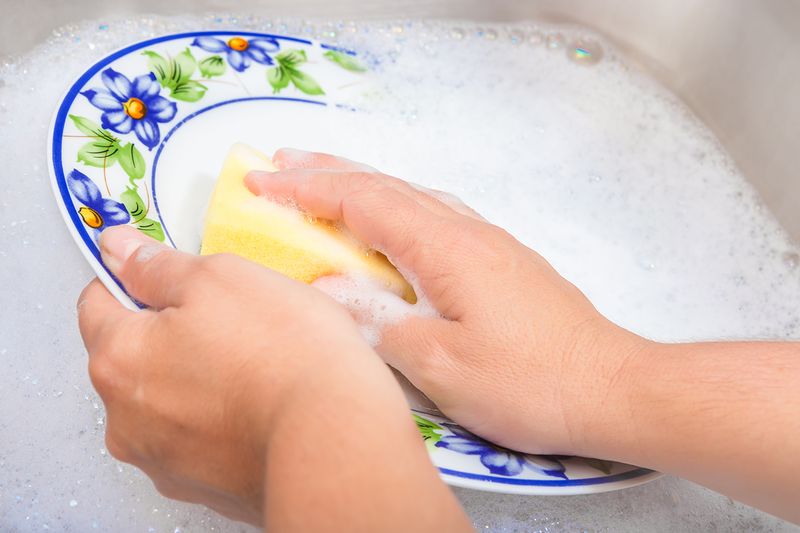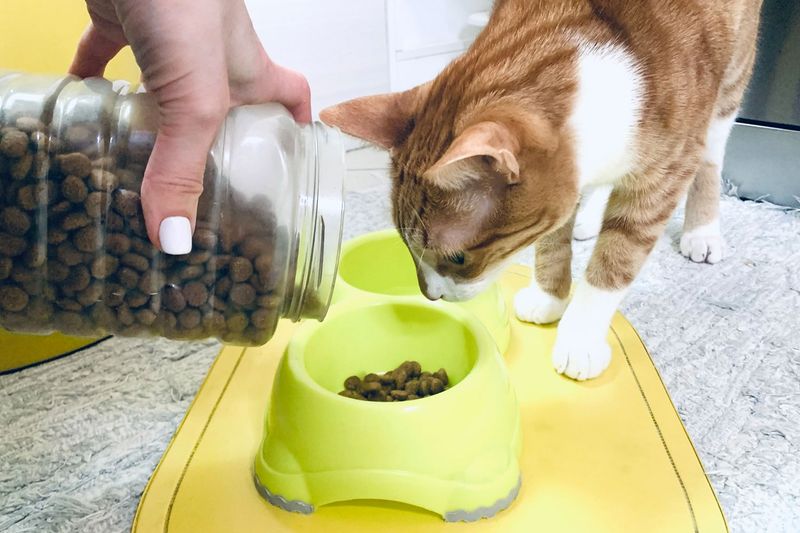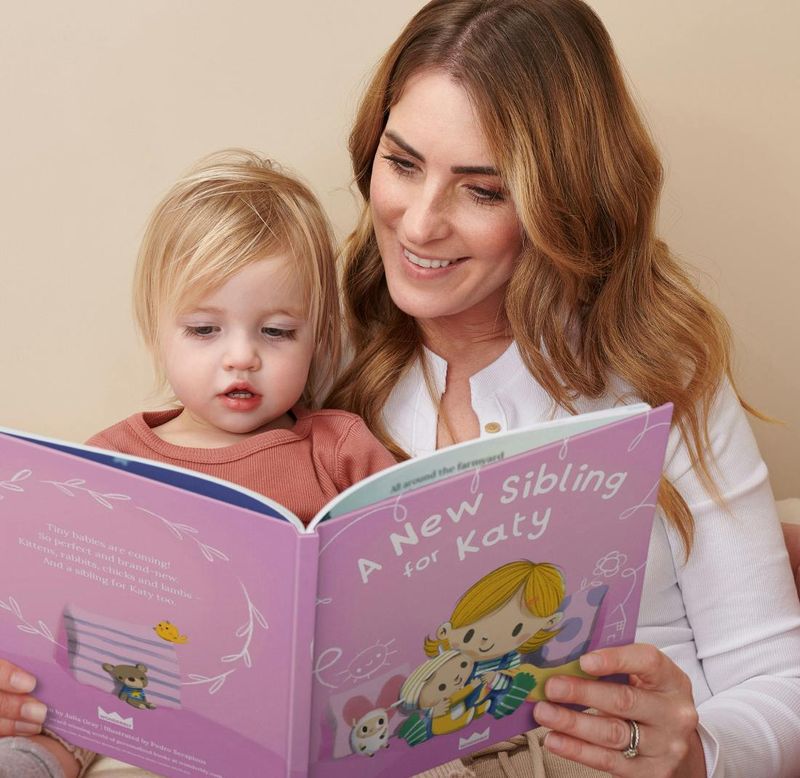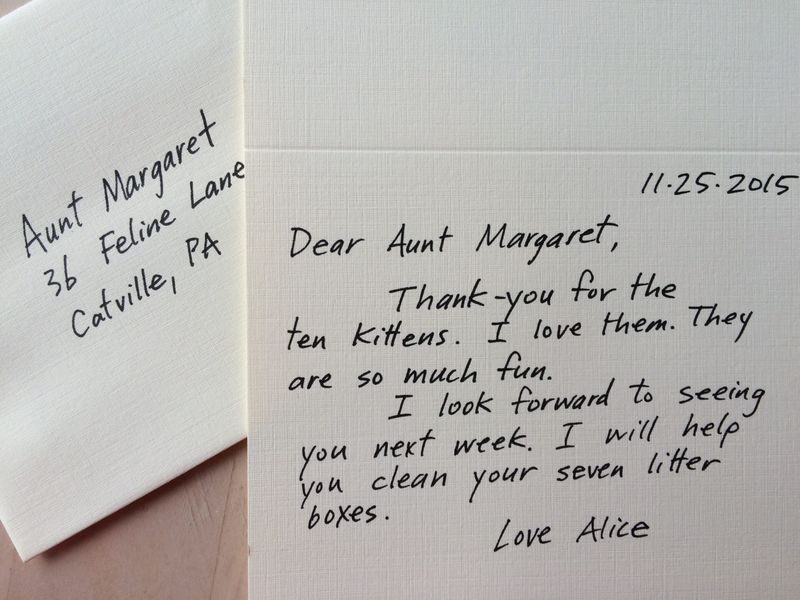In a time when daily routines were governed by discipline and expectations, Baby Boomers were tasked with chores that shaped their character and work ethic.
These daily responsibilities, often non-negotiable, were integral to family life and community well-being. Filled with nostalgia and life lessons, this list takes a closer look at 20 chores that Boomers embraced with no hesitations.
From household tasks to community duties, these chores reveal a lifestyle marked by diligence and responsibility. Let’s explore the world of Boomers and the tasks they performed dutifully every single day.
1. Lawn Mowing
Boomers were often expected to keep the family lawn neatly trimmed without question. Using manual push mowers, they would spend hours ensuring every blade of grass was even.
This chore not only maintained curb appeal but also promoted a strong sense of duty and pride in home ownership.
Neighbors appreciated well-manicured lawns, making this task a community expectation. It was not uncommon for Boomers to mow elderly neighbors’ lawns, fostering community bonds.
Engaging in this physical task taught them perseverance and the rewards of hard work. Lawn care was more than a chore; it was a tradition.
2. Dishwashing
Without the modern convenience of dishwashers, Boomers frequently washed dishes by hand after every meal. This task, often shared among family members, was an opportunity to teach responsibility and teamwork within households.
The ritual of cleaning plates, glasses, and cutlery was a daily routine that instilled a sense of cleanliness and order. It also provided moments for family bonding and conversations over the kitchen sink.
For Boomers, dishwashing symbolized the importance of maintaining a tidy home and the satisfaction of completing a task thoroughly.
3. Sweeping Floors
Sweeping floors was a daily necessity, ensuring homes remained clean and welcoming. Boomers were taught to sweep methodically, leaving no corner untouched. This chore was vital in maintaining hygiene, especially in busy households.
The rhythmic motion of sweeping often provided a meditative moment in a busy day. It was a task children learned early, fostering responsibility and attention to detail.
Boomers embraced sweeping as a part of daily life, a simple yet essential contribution to household upkeep. It was more than cleaning; it was care in action.
4. Taking Out the Trash
Boomers were responsible for taking out the trash, a task essential to maintaining household cleanliness. This chore often involved sorting waste and ensuring it reached the curb in time for collection.
Amidst the routine, they learned the value of waste management and environmental responsibility. It was a straightforward task but one that emphasized the importance of consistency and reliability.
Taking out the trash was a foundational chore that highlighted the interconnectedness of personal responsibility and community standards.
5. Feeding Pets
Feeding family pets was a cherished responsibility for Boomers, ensuring their furry friends were well cared for. This daily task taught empathy and the importance of nurturing living beings.
Whether it was measuring pet food or ensuring water bowls were filled, this chore required attentiveness. It was a routine that strengthened the bond between Boomers and their pets.
Beyond care, it developed a sense of routine and the understanding of the joy that comes from caring for others. Feeding pets was both a duty and a delightful part of the day.
6. Making Beds
Beginning the day with made beds was a non-negotiable expectation for Boomers. This task set the tone for an organized start, instilling discipline and pride in personal spaces.
The process of smoothing sheets and fluffing pillows became a morning ritual. It was a small act with significant impact, providing a sense of accomplishment early in the day.
Boomers understood that a tidy bed contributed to a calm and orderly environment. Making beds was more than aesthetic; it was a foundational habit that influenced their daily outlook.
7. Doing Laundry
Laundry was a labor-intensive chore, involving sorting, washing, and hanging clothes to dry. Boomers were expected to manage this task regularly, ensuring the family had clean clothes.
The process taught them organization and time management, as laundry required planning and attention. Hanging clothes on lines connected them with nature, utilizing sun and wind as natural drying agents.
Boomers learned the importance of garment care and the satisfaction of fresh, clean laundry. This chore was a testament to diligence and the art of maintaining a household.
8. Cooking Meals
Boomers often took part in meal preparation, a skill that combined creativity with practicality. Cooking was more than nourishment; it was a way to connect with family through shared recipes and traditions.
This daily chore involved planning, preparing, and serving meals that catered to everyone’s tastes. It was a rewarding task that highlighted the importance of nutrition and the joy of home-cooked meals.
Boomers valued the time spent in the kitchen as a means of expressing love and care. Cooking was an art passed down through generations, cherished and respected.
9. Grocery Shopping
Grocery shopping was a vital chore, ensuring the household was stocked with essentials. Boomers took this task seriously, often sticking to lists and budgets to manage resources effectively.
Navigating aisles and selecting quality products required attention to detail. It was an opportunity to engage with the community, as local markets were hubs of social interaction.
Boomers learned the importance of nutrition and budgeting through this essential chore. Shopping trips were more than errands; they were experiences that reinforced the value of planning and resourcefulness.
10. Dusting Furniture
Dusting was a regular chore, essential for maintaining a clean and welcoming home environment. Boomers were diligent about this task, ensuring furniture was free of dust and allergens.
The process involved careful attention to detail, reaching every nook and cranny to protect surfaces and display items. It was an exercise in patience and thoroughness, reflecting the pride they took in their living spaces.
Dusting was more than cleaning; it was an act of preserving memories and ensuring a pleasant atmosphere. Boomers embraced it as part of their routine commitment to home care.
11. Ironing Clothes
Ironing was a meticulous task, ensuring clothes were neat and presentable. Boomers often spent hours perfecting creases and smoothing out wrinkles, maintaining a polished appearance.
This chore required patience and precision, skills that translated into other areas of life. It was a task that emphasized the importance of detail and self-presentation.
Ironing was more than simply removing wrinkles; it was about preparation and pride in one’s appearance. For Boomers, this task was integral to their daily routine, reinforcing values of neatness and diligence.
12. Polishing Shoes
Polishing shoes was a detail-oriented task that Boomers learned from a young age. This chore ensured footwear remained in top condition, reflecting their attention to personal presentation.
The rhythmic motion of applying polish and buffing leather instilled pride in appearance and care for possessions. Boomers viewed well-maintained shoes as a sign of respectability and discipline.
It was an exercise in patience and precision, traits valued in both personal and professional settings. Polishing shoes was more than upkeep; it was a ritual that reinforced the importance of care and attention to detail.
13. Cleaning Bathrooms
Cleaning bathrooms was an essential chore, ensuring hygiene and cleanliness in shared spaces. Boomers took this task seriously, scrubbing surfaces and sanitizing fixtures regularly.
This chore was critical in maintaining a healthy living environment, requiring diligence and thoroughness. It taught Boomers the importance of cleanliness and the satisfaction of a job well done.
They embraced this task as part of their commitment to family well-being. Cleaning bathrooms was not just about aesthetics; it represented responsibility and the value of living in a clean, healthy space.
14. Bedtime Reading for Siblings
Reading to younger siblings before bed was a cherished task among Boomers. It was a way to bond and share stories, creating memories and instilling a love for literature.
This routine involved selecting engaging books and reading aloud, fostering imagination and creativity. It was a special time that strengthened family connections and contributed to younger siblings’ development.
Boomers valued this task for the joy and comfort it brought to their siblings. Bedtime reading was more than a duty; it was a nurturing tradition that enriched family life.
15. Helping with Homework
Boomers were often tasked with helping younger family members with homework, a responsibility that emphasized education and support. This chore involved patience and guidance, ensuring children understood their studies.
It was an opportunity to reinforce learning and share knowledge, reflecting the importance placed on education. Boomers embraced this task, providing encouragement and support.
Helping with homework was not just about academics; it was about fostering growth and confidence in younger generations. This duty highlighted the value of shared learning experiences within the family.
16. Gardening
Gardening was a rewarding daily task for many Boomers, connecting them with nature while providing fresh produce. This chore involved planting, watering, and nurturing plants, reflecting care and patience.
Boomers learned the cycles of nature and the satisfaction of growing their own food. It was a task that combined physical activity with mindfulness, offering a respite from daily stresses.
Gardening was more than a chore; it was a passion that fostered sustainability and a deep appreciation for the earth. Boomers cherished gardening as both a duty and a delight.
17. Paying Bills
Paying bills was a routine chore that Boomers managed with diligence. This task involved organizing finances, writing checks, and ensuring payments were made on time.
It required responsibility and attention to detail, teaching valuable lessons in budgeting and financial planning. Boomers viewed this task as essential to maintaining stability and trustworthiness.
Paying bills was more than just a chore; it was a testament to reliability and the importance of managing one’s financial responsibilities. It reinforced the value of discipline and foresight in everyday life.
18. Car Maintenance
Car maintenance was a necessary chore that Boomers often undertook to ensure their vehicles were in top condition. This task involved checking oil levels, tire pressure, and performing regular tune-ups.
Boomers took pride in understanding their vehicles, viewing maintenance as both a responsibility and a skill. It taught them problem-solving and the importance of preventive care.
Car maintenance was more than upkeep; it was about safety and longevity. This chore reflected Boomers’ commitment to responsibility and the satisfaction of caring for valuable possessions.
19. Writing Thank You Notes
Writing thank you notes was a thoughtful task that Boomers embraced as a gesture of gratitude. This involved crafting heartfelt messages to express appreciation for gifts or kindnesses received.
It was an exercise in mindfulness and communication, highlighting the importance of acknowledging others’ generosity. Boomers saw this task as a way to strengthen relationships and foster goodwill.
Writing thank you notes was more than etiquette; it was a meaningful tradition that celebrated gratitude and connection. It reinforced the value of personal touch in a fast-paced world.
20. Tidying Personal Spaces
Keeping personal spaces tidy was a daily expectation for Boomers. This chore involved organizing belongings and ensuring neatness in bedrooms and work areas.
Boomers understood that a clean space contributed to mental clarity and productivity. It was a task that taught discipline and the importance of maintaining order.
Tidying up was more than just cleaning; it was about creating a harmonious environment conducive to relaxation and focus. This chore highlighted Boomers’ commitment to personal responsibility and the value of a well-organized life.

